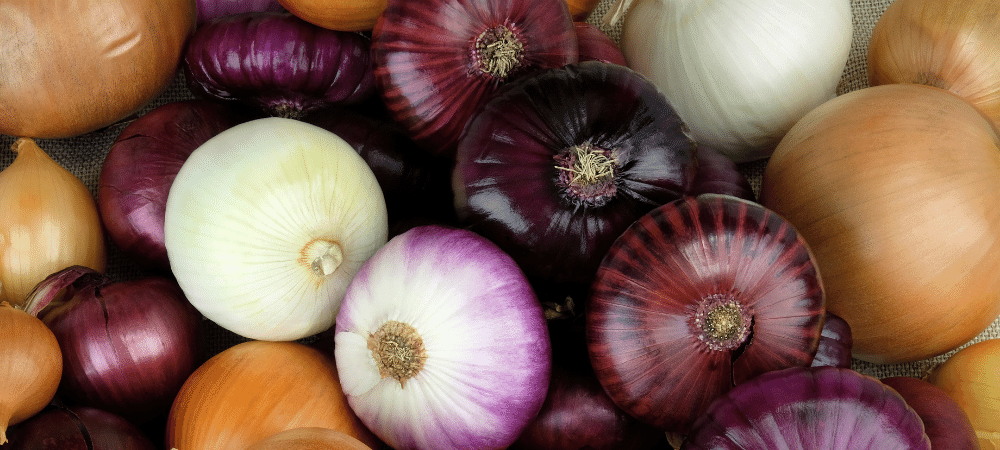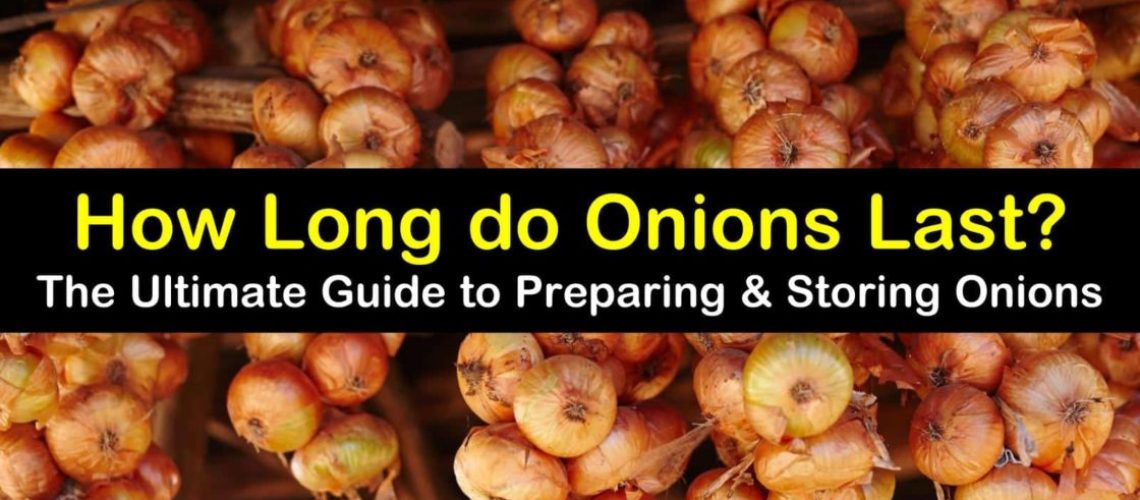Today well be discussing how to store your onions. Onions: either you love them or you hate them. The root vegetable, which comes in all different shapes, colors, and sizes, may have a peculiar taste and make you cry when you cut into them, but onions are often a leading ingredient in the kitchen. So it’s important to know how to store onions properly to avoid spoilage.
Here’s everything we learned about how to store onions—both uncut and cut—the right way.
A dark, cool, well-ventilated place to store uncut onions.
Keeping all bulb onions in a “dark, cool place: such as a pantry, basement, or garage, can give the onions a shelf life of up to four weeks. A dry, well-ventilated place is very important because “the mold, which is a fungi, cannot grow in dry environments because they need moisture for growth.” The result? Slowed-down spoilage. In fact, according to one 2016 study, it’s ideal to store uncut onions at a temperature of 40-50°F.
It’s also imperative to store the uncut onions in a mesh bag or open basket rather than a plastic bag because plastic bags don’t have the proper ventilation to help the onions last longer. Have you ever noticed your refrigerated onions becoming sappy, soggy, and soft sooner than you’d like? That’s because the plants store carbohydrates as complex sugar called starch, and when they’re stored in a cool temperature, those complex starches get converted into simple sugar molecules. “Microorganisms, [such as mold], love sugar because sugar gives them the energy to grow.”
How to Store Onions at Different Processing Stages
To ensure that your onions last as long as possible, proper storage is essential.
Here are the best ways to store them at different processing stages.

Peeled
Once an onion is peeled, it should be stored in the fridge to avoid bacterial contamination.
Place it in an airtight container and ensure your fridge is set to 40°F (4°C) or below.
According to the USDA, peeled onions can last 10–14 days in the refrigerator.
Sliced, Cut or Diced
Sliced, cut or diced onions can be stored in the fridge for up to 10 days.
Simply wrap them tightly in plastic wrap or keep them in a resealable bag.
Alternatively, you can purchase pre-sliced onions at many supermarkets. Make sure to keep them refrigerated and use them before their expiration date.
For long-term use, sliced, cut or diced onions can be stored in the freezer for three to six months. They are best used in cooked dishes such as soups, stews and casseroles.
Cooked
Cooked onions can be stored in the fridge for three to five days.
Simply place them in an airtight container or resealable bag within a few hours of cooking. If left outside for long periods, they may harbor bacteria.
Better yet, cooked onions can be stored in the freezer for up to three months.
Pickled
Pickling is a low-cost way of extending the shelf life of your onions.
It involves storing them in a solution that hinders the growth of bacteria that typically spoil vegetables. Prepared this way, they may last up to six months.
To pickle onions, place peeled onions into a glass or ceramic jar filled with vinegar and a combination of salt, sugar and spices that suit your taste preferences.
Once opened, they are best kept in the refrigerator, which will help them last longer.
SUMMARY
Whole onions are best stored in a cool, dark, dry and well-ventilated room, while peeled, sliced, cut, cooked and pickled onions can be refrigerated. Onions can be frozen to further extend their shelf life, but then they are best used in cooked dishes.

